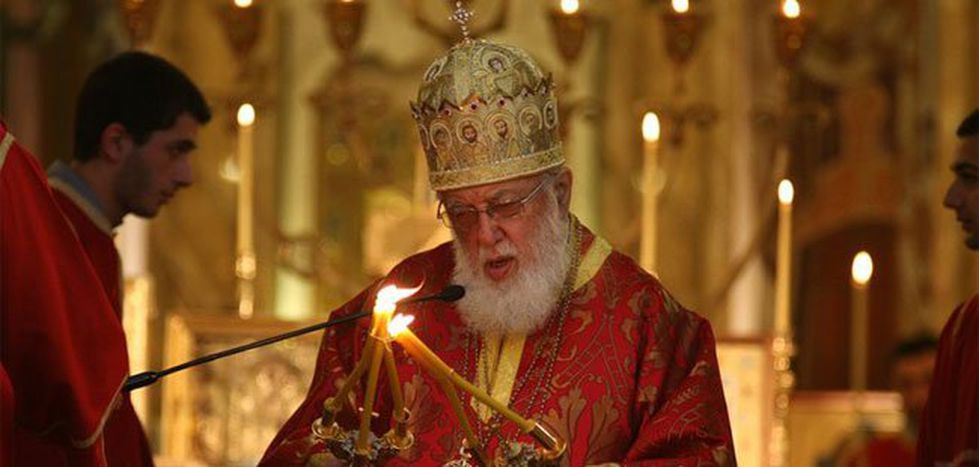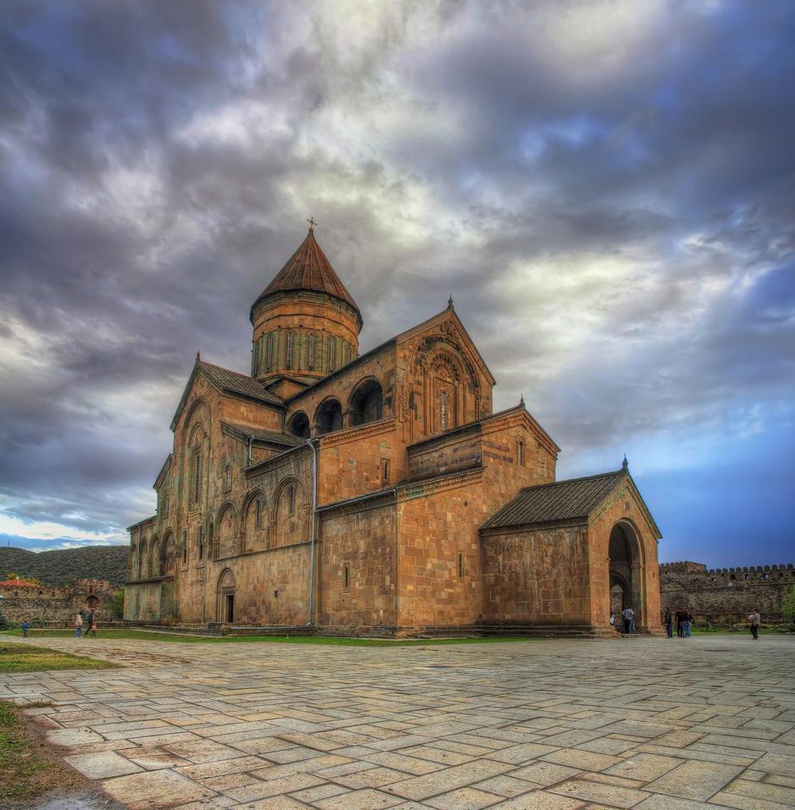
The Georgian Orthodox Church Declares a War on Children
Published on
Whenever there is an orthodox holiday in Georgia, the Patriarch gives a live sermon on television. This year there was only one orthodox holiday – Christmas on the 7th of January- but the Church’s annual address was enough to shock most of the country.
Ilia II has been Georgia’s patriarch since 1977. Due to his Parkinson's disease, he was unable to give this year's annual address himself, and entrusted the task to one of his priests.
The Church's war on children
Children were the main topic of discussion during the Priest’s address. The Priest, speaking in the name of the Patriarch, talked about who can and cannot have a child. The discourse started with same-sex marriage, which wasn’t a surprise since everyone is aware of the Church’s view on homosexuality. But the priest then went on to deny even same sex couples the right to adopt a child, saying that adoption makes a child an object that anyone can purchase.
‘The progress of science has raised ethical problems that mankind has never heard of, such as artificial insemination, children conceived in test tubes, surrogate mothers, gene fusion, cloning etc. So called humanists support abortion, euthanasia and suicide’– said the priest during his address. ‘Can a family be happy if their child was born by a surrogate mother? This child was brought into a loveless home to a life doomed to loneliness. Even if he is raised in a wealthy family, nothing can change the severity of the prenatal period and the problems that will consequently arise in adulthood. Children born by artificial insemination will be problematic too, as their lives were developed by destroying embryos.’
Christianity preaches tolerance, kindness, optimism, conscientiousness, and love for mankind, not evil, envy or judgment. However, the Church set out to condemn modernity with its judgments.
 The annual address was particularly shocking because the Church had never before said anything so negative at Christmas. Even government officials felt the need to respond to the speech.
The annual address was particularly shocking because the Church had never before said anything so negative at Christmas. Even government officials felt the need to respond to the speech.
Merry Christmas to you too
The first to respond was Tamar Chugoshvili – an adviser to the prime minister. ‘Merry Christmas,’ she said, ‘in particular to the amazing children who were born by surrogate mothers, or were born through artificial insemination. Merry Christmas to their families, to surrogate mothers, to minority groups, and to women, who, it turns out, are keen on false freedom, and Merry Christmas to those whose hearts hurt today. I’m sure that God particularly loves us.’
Both President Giorgi Margvelashvili and the minister of labour, health and social affairs David Sergeenko also responded the next day. Minister Sergeenko even attempted to explain surrogacy and artificial insemination from a scientific perspective. Many found his attempt commendable, since Georgians clearly need this kind of information.
The Church’s Christmas address this year is especially worrisome because many people in Georgia believe whatever the Church tells them to believe. It is difficult to understand why the Church would say something so hateful, especially about children. A speech about children should be written with love and positivity towards everyone.
Most people want to have children eventually, but there are many people who cannot get pregnant. These people do everything they can to have a child, so why should we deny them the right to seek alternative ways to conceive? Why should a child be treated differently because it was born through artificial insemination? The future depends on new generations, and we shouldn’t turn our backs on them, even if the Church tells us to. The Church should learn to make love not war, and especially not a war on children.



